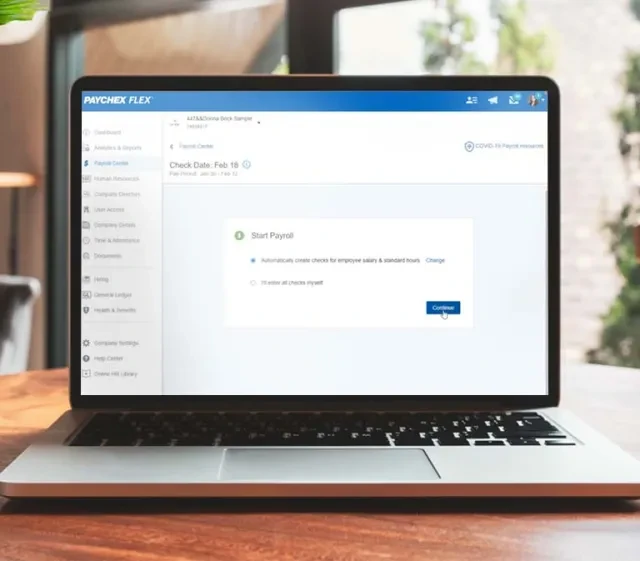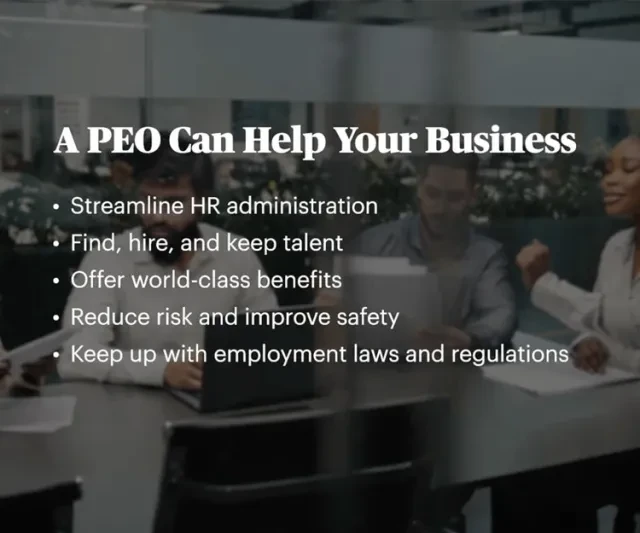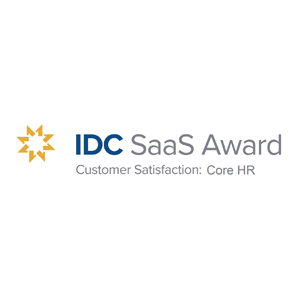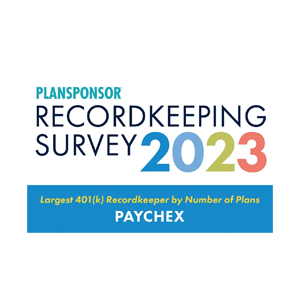Paychex HR and Payroll Services in California
Paychex can help California businesses with our leading payroll and HR services backed by multiple support options, such as experienced HR professionals, in-app help, and more.
Get a Free Quote
Paychex Services for California Businesses
Do Payroll Easily, and Automatically Submit Taxes
Nearly 800,000 businesses use Paychex to manage their payroll, HR, and benefits. Our fast, accurate payroll processing makes it simple and easy. Calculate, file, and pay payroll taxes effortlessly.

Professional HR Guidance and Support
We’re an HR solutions provider that offers access to a dedicated, experienced HR professional. Ensure your business gets the full attention and support it deserves.

Prepare Your Business for California's Retirement Savings Mandate
California businesses, the retirement savings mandate is here — companies with 1+ employees must offer a retirement savings program or face fines of $250 per employee. Non-exempt business owners without a qualified retirement plan must comply with the 12/31/25 deadline. While the state-run CalSavers IRA is an option, a 401(k) plan could offer your business greater flexibility and benefits.

Attract and Retain the Best Talent
Our comprehensive employee benefits package can help you level the playing field with Fortune 500 companies, take time-consuming HR administrative responsibilities off your plate, and support you with seamless online employee benefits administration.

A Single Solution for Employee Management
Our professional employer organization provides an all-in-one HR solution that helps make it easier for you to manage employee benefits, HR, payroll, and compliance.

Paychex Flex®: The Single Platform for Your HR, Payroll, and Benefits
Our award-winning technology platform — Paychex Flex — can scale to serve any business of any size. It’s easy to use from your desktop or mobile device and offers more than 30 self-service actions for increased convenience and employee independence.
How Can a PEO Help Your California Business?
The ever-changing regulatory and legislative landscape in California has created challenges for businesses that must recruit and retain talent while managing increased compliance requirements. A Professional Employer Organization (PEO) can offer businesses support with HR and benefits administration, payroll, compliance, and more.

Contact a Paychex Payroll and HR Consultant
Paychex uses expertise, innovative thinking, and extensive customer support to work with you the way you want to work. Our 650 experienced payroll and HR customer service representatives are ready to help you 24/7.

Convenient Service
We’re here when you need us, anywhere, anytime. Phone, email, mobile app: you choose
- Get up-to-date information on compliance and regulations for businesses like yours
- With Paychex, you’ll find a trusted partner who listens and focuses on what matters to you — running your business smoothly
- We’ll help you create and manage a benefits package to recruit and keep your employees
- Get help navigating HR challenges with the option to work with a dedicated Paychex HR professional

Are You Ready for New CA Employment Laws and Regulations?
In just three 20-minute sessions, get the information you need with our 2026 California Compliance Changes Webinar Series.
Paychex Is the Smart Choice for Payroll and HR Services in California
- Recruit top employees and streamline the onboarding process
- Get up-to-date information on compliance and regulations for businesses like yours
- Named one of the World’s Most Admired Companies, by Fortune®
- Whether you’re self-employed, or have 1,000 employees, our payroll and HR solutions are built to grow with you

Find the Right Solution for Your Business
Paychex has the technology, expertise, and customer service that can help move your business forward by finding the right solution that works best for your individual needs, no matter what the size of your business.
How Many Employees Do You Have?
Additional Resources for Businesses in California
Payroll Solutions for Businesses of Every Size
Paychex Payroll Services can save you and your business time so that you can focus on what matters most. Hear from our customers about why they choose Paychex to help ease the payroll burden.
"Julie [my Paychex HR consultant] does a good job of bringing the best out of us."

“Having adequate conversations with each employee so they can tell me what makes them most comfortable – that’s priceless. It brings me peace of mind.”
“We were well-prepared thanks to Paychex on providing a lot of information on (how to work with our outside and internal workforce on requirements of doing business during COVID-19).”

“Payroll has to be done right. If the client has problems with payroll and the provider, it comes right back to us. We know that when they go to Paychex, they’re going to be taken care of and everything’s done.”

"What Paychex does for me is take away any anxiety or fear of any problems. And I'm very comfortable with them doing the work for me. Because it's a pretty serious problem when you're dealing with the IRS and the state taxes."










